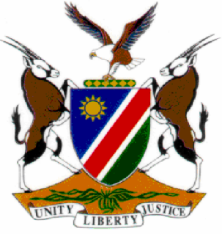REPUBLIC OF NAMIBIA
NOT REPORTABLE

HIGH COURT OF NAMIBIA, MAIN DIVISION
JUDGMENT
CR No: 14/2016
In the matter between
THE STATE
And
WILLEMINA EISES
HIGH COURT MD REVIEW CASE NO 175/2016
Neutral citation: State v Eises (CR 14/2016) [2016] NAHCMD 55 (03 March 2016)
CORAM: LIEBENBERG J et SHIVUTE J
DELIVERED: 03 March 2016
Flynote: Sentence – Suspended sentence – Conditions – Certainty – Accused convicted of a contravention under the Liquor Act (Drunk, violent or disorderly conduct) – Condition that accused not to be ‘convicted of the Liquor Act’ too vague – Such condition leads to uncertainty – Condition to refer to the offence for which he was convicted under the Liquor Act.
ORDER
The conviction is confirmed.
The sentence is confirmed but amended to read: Fined N$2 000 or 4 months’ imprisonment of which N$1 000 or 2 months’ imprisonment is suspended for 3 years on condition that the accused is not convicted of a contravention of section 71 (1)(h) of the Liquor Act, committed during the period of suspension.
JUDGMENT
LIEBENBERG J: (Concurring SHIVUTE J)
[1] The accused appeared in the Magistrate’s Court for the district of Mariental on a charge of Drunk, violent or disorderly conduct in contravention of s 71 (1)(h) of the Liquor Act, 6 of 1998 (the Act). He was convicted on his plea of guilty and sentenced to a fine, partly suspended on condition of good conduct.
[2] The conviction is in accordance with justice and will be confirmed; the sentence, however, is not. The sentence that was imposed reads as follows: Fined N$2 000 or 4 months’ imprisonment of which N$1 000 and 2 months are suspended for 3 years on condition that the accused is not convicted of the Liquor Act during period of suspension.
[3] On review a query was directed enquiring from the magistrate what was the court’s intention when stating that the accused should not again be ‘convicted of the Liquor Act’ as the wording seems to suggest that the Act in itself constituted an offence.
[4] In reply the magistrate concedes the invalidity of the suspensive condition and that it should be corrected to refer to the offence for which the accused was convicted. The concession is correctly made as it is clear that the framing of the condition, as it now reads, does not make sense and is simply too vague. (See S v Nangolo1; S v Simon2)
[5] It is settled law that the conditions of suspension must be clear and precisely formulated. The reason for this, inter alia, is that the accused must understand what he or she has to do or, where a prohibited act is embodied as a condition of suspension, what the accused must avoid doing in order to ensure that the suspended portion of the sentence is not put into operation. In the present instance the accused could not be expected to know which acts under the Liquor Act are criminalised and which he has to avoid doing; the condition is simply too vague and widely formulated. In this case it would be proper to inform the accused that he must not repeat his actions by being drunk or disorderly in public, whereby he would be contravening the provisions of s 71 (1)(h) of the Act; the same offence for which he was convicted. The sentence, as it now reads, does not convey this to the accused and therefore stands to be corrected.
[6] In the result, it is ordered:
The conviction is confirmed.
The sentence is confirmed but amended to read: Fined N$2 000 or 4 months’ imprisonment of which N$1 000 or 2 months’ imprisonment is suspended for 3 years on condition that the accused is not convicted of a contravention of section 71 (1)(h) of the Liquor Act, committed during the period of suspension.
___________________
J C LIEBENBERG
JUDGE
___________________
N N SHIVUTE
JUDGE
12007 (1) NR 304 (HC)
21991 NR 104 (HC)